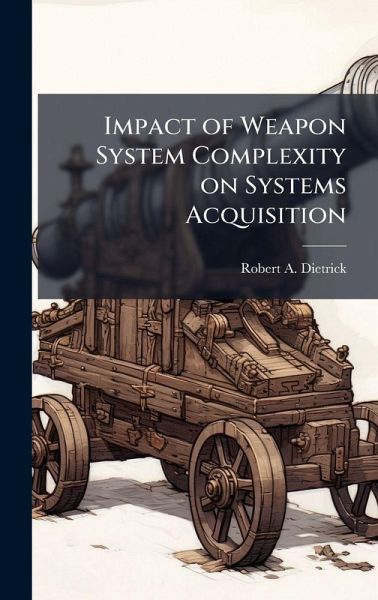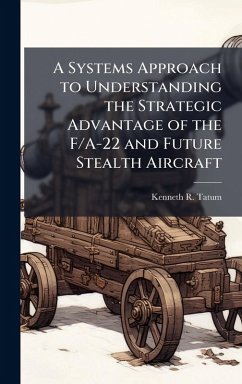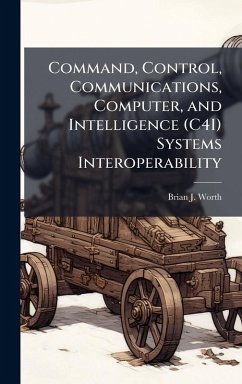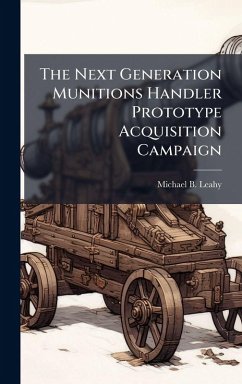
Impact of Weapon System Complexity on Systems Acquisition
Versandkostenfrei!
Versandfertig in über 4 Wochen
25,99 €
inkl. MwSt.
Weitere Ausgaben:

PAYBACK Punkte
13 °P sammeln!
This paper reviews the previous use of the term complexity with respect to weapon systems. It then moves past these dated inferences that weapon system complexity is merely a synonym for cost or technical challenge and establishes a formal definition of complexity based on the interactions between the entities comprising the system. Due to difficulties in direct measurement of interactions, an equation is introduced to calculate the theoretical maximum number of interactions and to use this as the measurement of complexity. Based on this definition, analysis of data for aircraft avionics and a...
This paper reviews the previous use of the term complexity with respect to weapon systems. It then moves past these dated inferences that weapon system complexity is merely a synonym for cost or technical challenge and establishes a formal definition of complexity based on the interactions between the entities comprising the system. Due to difficulties in direct measurement of interactions, an equation is introduced to calculate the theoretical maximum number of interactions and to use this as the measurement of complexity. Based on this definition, analysis of data for aircraft avionics and airborne reconnaissance sensors suggests convincingly that system complexity is indeed increasing exponentially. Increasing complexity can be linked to system development cost and schedule and production cost as previously inferred by at least some researchers. No single solution exists for addressing this trend of increasing complexity. Attempts can be made to either limit the amount of complexity of future weapon systems while still providing adequate performance increases or to better cope with complexity. In regard to the latter, it has been suggested that acquisition is analogous to Clausewitzian warfare in some key respects and that the cultivation of acquisition genius should be pursued in like manner to the cultivation of war genius. This work has been selected by scholars as being culturally important, and is part of the knowledge base of civilization as we know it. This work was reproduced from the original artifact, and remains as true to the original work as possible. Therefore, you will see the original copyright references, library stamps (as most of these works have been housed in our most important libraries around the world), and other notations in the work. This work is in the public domain in the United States of America, and possibly other nations. Within the United States, you may freely copy and distribute this work, as no entity (individual or corporate) has a copyright on the body of the work. As a reproduction of a historical artifact, this work may contain missing or blurred pages, poor pictures, errant marks, etc. Scholars believe, and we concur, that this work is important enough to be preserved, reproduced, and made generally available to the public. We appreciate your support of the preservation process, and thank you for being an important part of keeping this knowledge alive and relevant.












